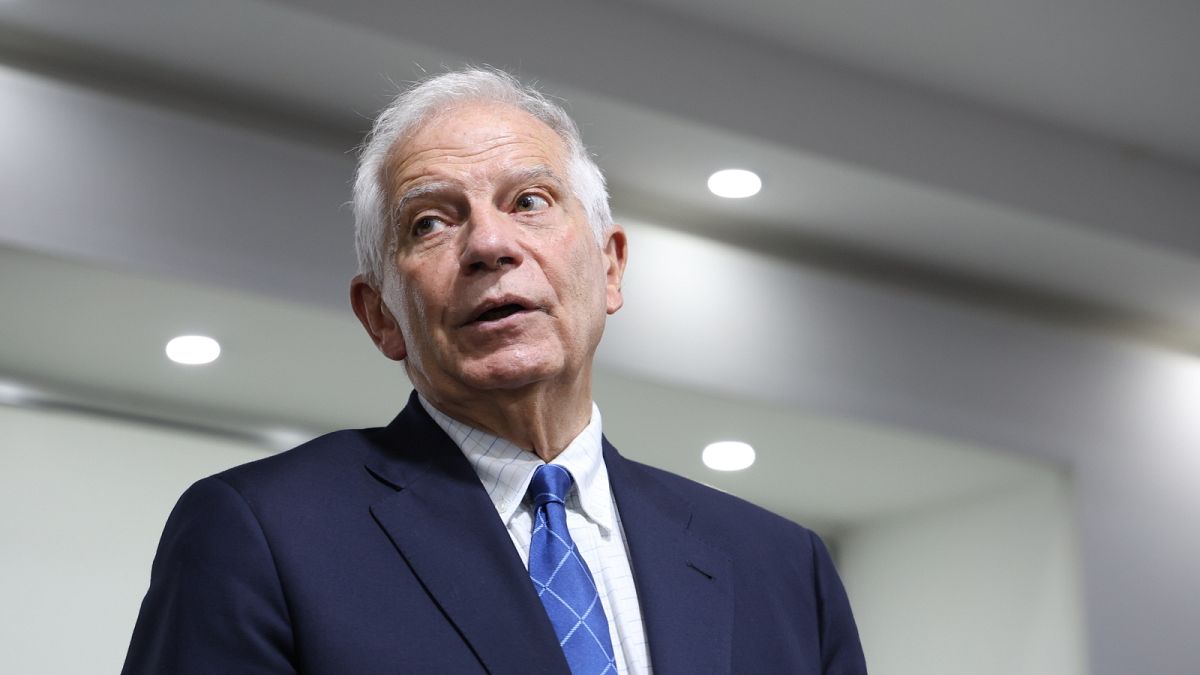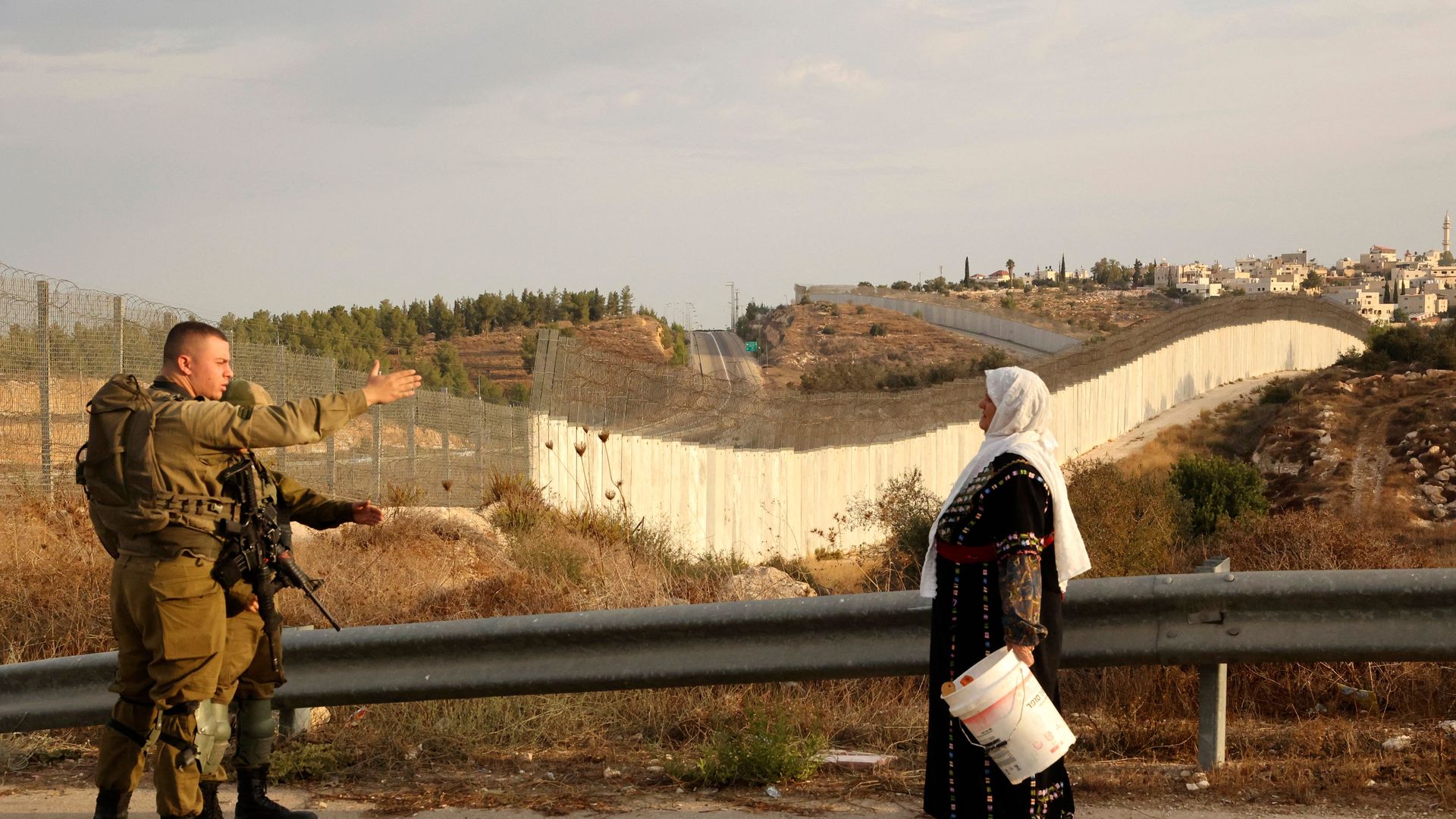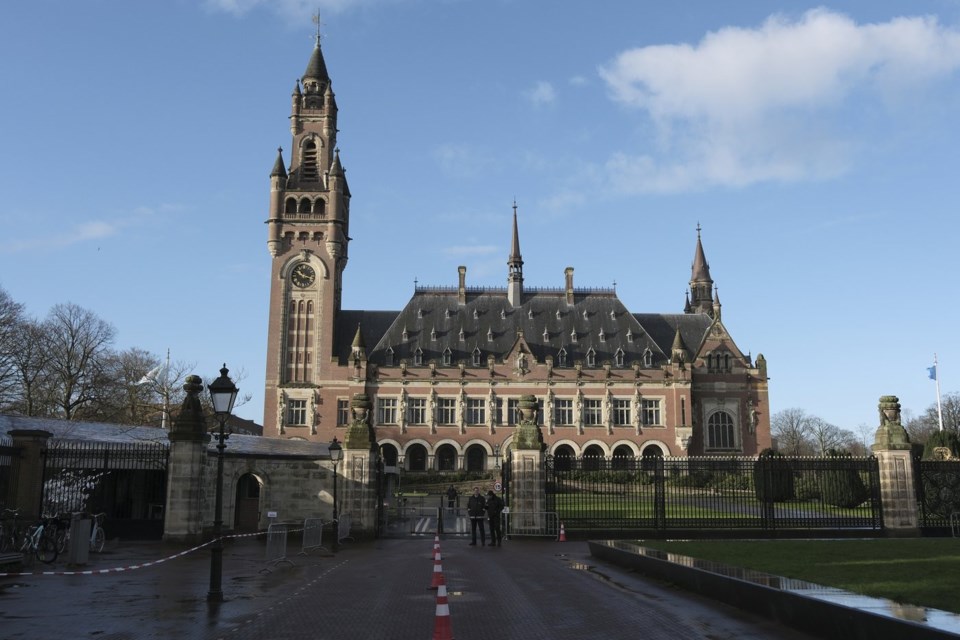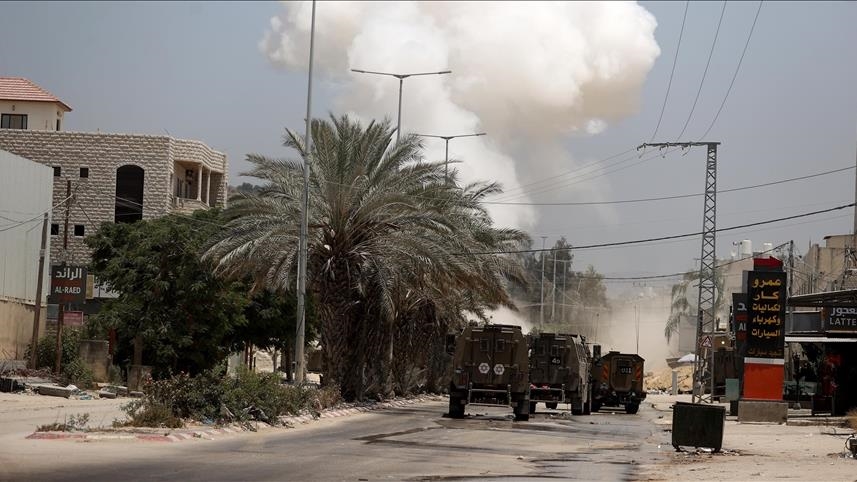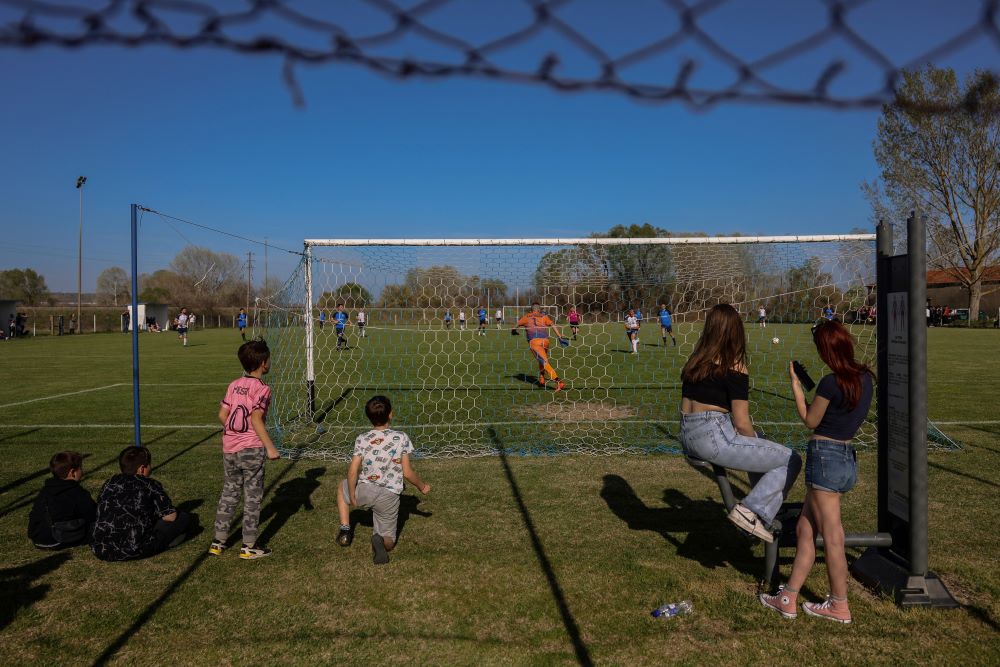
People watch a local derby soccer match in the village of Ormenio, Greece, March 30, 2024. (Photo: REUTERS/Louisa Gouliamaki)
By Foteini Simic and Petros Kalosakas
Published on 19/07/2024
Foteini Simic, 16 years old, and Petros Kalosakas, 18 years old, are high-school students and Greenpeace volunteers from Athens, Greece.
There are few moments in life that count forever. Choosing who (and if) to marry, becoming a parent, buying a house… Before all of these come the last years of the Greek Lykeio (senior high school) and the critical final exams held during the month of June. The grades one gets at the end of those three years give shape to all the life milestones to come.
This year’s exams – especially their final days, June 11-13 – were for sure memorable… Temperatures soared to 43C in the month of June in much of the country – an unprecedented occurrence in our lifetime, which forced us to go through this important rite of passage at the end of high school in unbearable conditions.
Difficulty to focus and breathe, dry mouths during oral exams, stifling heat slowing one’s handwriting, and temperatures that the human body cannot endure for long – these were not the ideal conditions for a successful graduation.
But the heatwave that messed up our graduation exams is not just bad luck. It is the result of very bad decisions. Recent studies have attributed Greece’s searing heat and ensuing wildfires of the past years to climate change. The UN Intergovernmental Panel on Climate Change (IPCC) concludes that the burning of fossil fuels is a primary cause for the excessive heating and rapidly rising temperatures.
This year’s heatwave was not only intense, but earlier than in previous years. As schools close for three months in the summer when the summer heat is high, there is normally not much need for air conditioning and most public schools don’t have more than ceiling fans to cool off.
The climate crisis has become an unfair obstacle to our individual prospects, affecting our entire generation across countries and continents. Of course, we will work hard to go through all the precious moments that life can offer, but it will be impossible to look back at this boiling month of June and ignore how badly it impacted our grades – and our future.
This might be a year that fossil fuels, and the companies that profit out of them, stole our opportunity to make memories and build a bright future.
Climate chaos hitting children
What we have missed in Greece this year pales in comparison to what others around the world have lost. Millions are displaced by floods in Bangladesh, while wildfires and storms claim victims from the Caribbean to China and Canada.
Children are often those more severely affected: we’re living through a global decline in the provision of education, with the number of children missing out on schooling inflating to a quarter billion. Extreme heat waves, fuelled by fossil fuel companies, threaten our generation’s future. In our times, the climate crisis is no longer just a warning. It is a harsh reality that is affecting our daily lives.
Climate chaos is real – and we are already facing its impacts. Yet governments have failed to move beyond fossil fuels and continue to depend on oil and gas companies, whose profits have been going strong, at an average of $3 billion a day for the last 50 years.
UK court ruling provides ammo for anti-fossil fuel lawyers worldwide
Big oil and gas majors like Shell, TotalEnergies, and ENI have known about the impacts of climate change for decades. Yet even though they kept making record profits – they never devoted their talents and resources to fix the problem. They didn’t use their political ties to ring the alarm bell. They rather invested millions and millions in greenwashing and denial.
Many others knew as well. Even our grandparents knew the lines of Greek singer Cat Stevens (today Yusuf Islam): “You roll on roads… pumping petrol gas… But they just go on and on and it seems that you can’t get off.” It was impossible to ignore.
Now it’s definitely time to jump off the fossil fuel wagon. Our generation must devote all its energies to raise awareness of how climate chaos is affecting us all, and to mobilise more people to support climate and environmental action. Alternatives must be pursued, and historical polluters must pay for all that they’ve taken from us – including our future.
